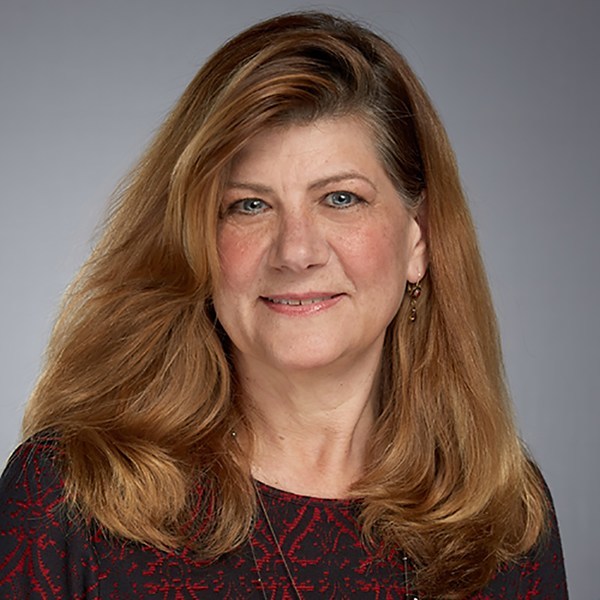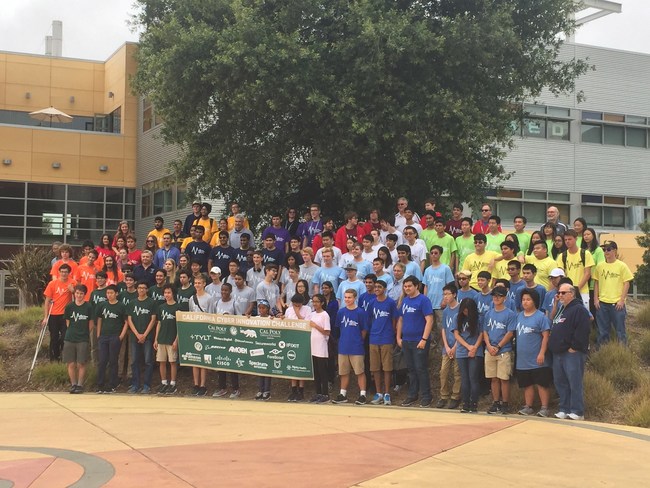LOS ANGELES, Sept. 22, 2020 /PRNewswire/ — Today SynED, a national non-profit organization that identifies emerging best practices for effective articulation between employers, job seekers, and education providers, announced that Paula Hodge is their national CyberHero for September.
As the Information Computer Technology – Digital Media (ICT-DM) Regional Director in California’s South Central Coast Region, Ms. Hodge works closely with industry partners and faculty to develop curricula that prepare students to address challenges facing cyber professionals every single day.


“The cyber defense industry is constantly updating requirements to meet threats from attackers abroad and at home,” said Ms. Hodge. “It’s my mission to ensure our faculty have the opportunity to upskill and keep current with their craft so they can prepare their students for success.”
In selecting Ms. Hodge for this month’s recognition, SynED evaluated her successes in building trusted relationships between industry partners and faculty and her willingness to take risks and initiate pilot programs for new course development.
“One of Paula’s great passions is connecting workforce education to the needs of the business community. She’s a vital force in helping close the serious shortage of cybersecurity talent. We can all be grateful that Paula’s part of our village,” said Dr. Stan Stahl, President, Secure the Village.
As a CyberHero, Ms. Hodge effectively supported the region’s cybersecurity Initiative in various ways to ensure its success, including:
- Led professional development meetings across the region for Computer Networking and Computer Science faculty to identify common curriculum and industry-recognized certifications.
- Facilitated cybersecurity conversations and internship opportunities with three Navy Warfare Centers.
- Hosted a regional workshop that brought together employers, educators, and workforce development stakeholders to discuss solutions for meeting the demand for cybersecurity across industry sectors.
“Paula is playing a huge role in enhancing and expanding IT and cybersecurity courses at our respective colleges in the South Central Coast Regional Consortium,” added Alex Lynch, Computer Networking/IT Instructor and Department Chair at Oxnard College.
Before joining the California Community College system, Hodge was an IT Director in the private sector and eventually moved into corporate cybersecurity policies and procedures. Paula began her transition from corporate IT leadership to serving educational endeavors as the Executive Board Secretary and Vice President of COMMON, the world’s largest association of IT professionals that focus on IBM and related technologies. She was responsible for leading COMMON’s educational committee and produced the initial educational strategic plan for the organization. In addition, she often found herself as a student at community colleges to keep pace with new developments and upskill her credentials and certifications.
“There are three types of community college students: someone who is learning material for the first time, those in the field striving to remain current or those seeking a mid-career change,” said Hodge. “That’s what makes the community college experience perfect for anyone because we can provide education from everyone’s starting point.”
As the ICT-DM Regional Director, Hodge has played a critical role in developing pilot programs that have paved the way for new community college course offerings. She initiated a pilot program to train IT professionals working in advanced manufacturing, providing a critical workforce need for completing technical audits required for all Department of Defense subcontractors. Hodge began working on the curriculum after identifying the urgent need for the skill set. Hodge and project manager Ron McFarland worked with industry representatives to ensure that the curriculum would meet their needs.
Hodge also spearheaded a proof of concept to allow students to access online labs for various IT and cybersecurity classes at any time and from anywhere for the eight colleges in her region. The effort is known as “Virtual Labs as a Service.” It also significantly reduces faculty workload by integrating the cloud-based platform with tools already in use by all eight colleges and making labs available for collective use. This, in turn, allows faculty to serve more students and increase the number of trained professionals in the workforce to fill the thousands of open IT positions in California and across the United States.
Even though Hodge doesn’t interact with students, day to day, helping those that serve students is her reward. “We bring together college faculty and industry leaders twice a year to look at cybersecurity from multiple sectors, like agriculture, healthcare, and business. We take the lessons learned from these convenings and apply it to curriculum development. My proudest professional moments are when I get to work with faculty to help them educate the next generation of professionals.”
“Paula has been hosting regional meetings for many years now,” said Ed Garcia, an Information Technology (IT) instructor at Moorpark College. “Faculty from our college consortium work together and follow Paula’s recommendations in developing curriculum, obtaining new skills, or sharing new ideas.”
Looking ahead, Hodge still has concerns that we’re not meeting the needs of an ever-changing landscape. As Hodge puts it, “I have observed the dark web to understand the challenges we face. And now, with Artificial Intelligence to speed things up for our adversaries, we are in a war.
We need more individuals aware of this war and not just the professionals who make this their career, but citizens of the United States. It is all of our responsibility to heed this.”
While challenges like this might seem like a daunting task to some, Hodge dives right in. “I’m constantly thinking about new curricula where we can combine the experiences and insights of our faculty and industry partners to meet the moment. Always asking myself and my colleagues, ‘ what more can we do?’
About South Central Coast Regional Consortium
There are eight-member South Central Coast Regional colleges whose service areas encompass the south-central coast of California, including all of Ventura County, north through Santa Barbara County, to San Luis Obispo, east to the northern end of Los Angeles County in Santa Clarita, and onward into the Antelope Valley, over 9,000 total square miles. Home to over 2.2M people, this region is characterized by small and mid-sized metropolitan communities and expansive rural areas.
About SynED®
SynED’s CyberHero’s series, which highlights cyber heroes who quietly go above and beyond in helping to secure our nation and communities, is a monthly column published nationally. SynED is a non-profit organization that acts as a catalyst to help colleges and other higher education partners equip students with the skills they need to enrich their lives through education, knowledge, and skill acquisition, giving them rich career opportunities. SynED also maintains a community for CTE professionals at Cyber-Guild.org®.
Contact: 866-420-4573
Liz Fraumann
247981@email4pr.com
SOURCE SynED

